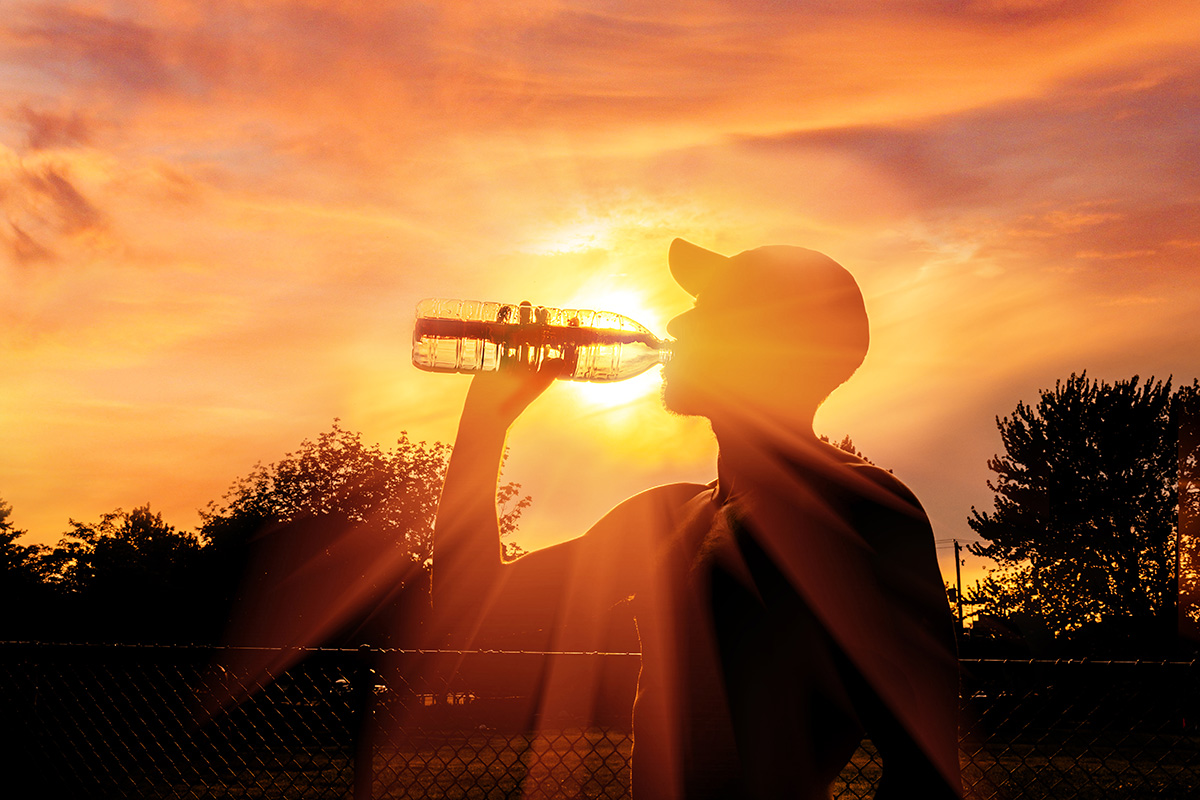This is a Maryland Matters story from August 1, 2024, that has been expanded upon by MoCo360.
Nearly 1,000 Marylanders have ended up in the emergency room for heat-related illnesses so far this summer and 14 people have died, as brutal temperatures lead to dangerous heat exhaustion, heat stroke and death.
The hospitalizations are the highest since the Maryland Department of Health began publishing that data in 2019, and come with two months left in the “heat season” that runs from May through September. With hotter days yet to come, state health officials are urging Marylanders to keep heat safety practices in mind.
“We still have some very, very hot days ahead of us,” said Clifford S. Mitchell, director of the Environmental Health Bureau in the health department. “We’ve seen over the last several years that the heat season … is in fact hotter, but we are seeing it start earlier and we’re starting to see greater numbers of hotter days.”
With temperatures expected to be in the upper 90s, Montgomery County has activated a hyperthermia alert for extreme heat from 11 a.m. to 8 p.m. Friday, according to the Office of Emergency Management and Homeland Security. Residents are urged to stay hydrated and take precautions to protect themselves and pets from heat-related illnesses.
NASA reported last week that July 22 was the hottest day in recorded history on Earth, passing the previous record set just last year.
The National Weather Service said Thursday evening that the Lower Eastern Shore was under an excessive heat warning with “dangerously hot conditions” and “heat index values up to 110 expected.” The rest of the state, with the exception of Allegany and Garrett counties, was under a heat advisory with heat index values up to 108 degrees expected.
The state health department releases weekly reports from May through September on heat-related illnesses and deaths. The most recent update was Wednesday, with data from April 28 through July 27.
That report said that at least 967 people had gone to the emergency room or urgent care due to heat-related illnesses as of July 27. That is already far higher than the 900 heat-related ER visits in 2019, the first year the data was gathered, and the 901 reported for the entire 2021 heat season.
Mitchell said the health department communicates with hospitals and emergency departments to ensure that facilities are prepared for potential influxes of patients needing medical care from the heat.
“That’s a large part of our local health department planning with the Office of Preparedness and Response, is to make sure that all of the people who could potentially be involved in response are aware when there’s going to be a sort of string of extreme heat days,” he said.
Heat exposure can lead to serious health conditions, the most dangerous being heat stroke, according to the Centers for Disease Control and Prevention. Heat stroke can lead to permanent organ damage, neurological dysfunction, or death if the affected person does not receive emergency treatment. Symptoms can include confusion, seizures, loss of consciousness and profuse sweating, among others.
Heat-related deaths rising
Deaths from heat-related illnesses are also climbing.
At least 14 heat-related deaths were recorded in the state as of July 27, as high as the previous two years combined. All of this year’s deaths have been to people 45 or older, with the majority – 11 of the 14 – being men.
While deaths this year are up, they are still well below the 28 heat-related deaths reported in 2018 and the 46 recorded in 2012, when storm-driven power outages left many without air conditioning for days.
The Department of Health continues to push for Marylanders to practice heat safety as the summer continues.
Those working or spending time outside should try to schedule physical activities in the morning or early evening when temperatures tend to be cooler. Residents should also wear sunscreen, avoid direct sunlight as much as possible and drink plenty of fluids, while avoiding alcohol, caffeine and “overly sweetened beverages.”
Children and pets should not be left in the car on a hot day even with the windows cracked, according to the department.
“Everybody is at risk for heat-related injury. It’s not just the very old, it’s not just the very young, it’s not just those with medical conditions. Everybody needs to take the heat very seriously,” Mitchell said.
“All the messaging around dressing appropriately, staying hydrated, taking frequent breaks, staying out of the heat … the message is the same,” he said.
Maryland Matters is part of States Newsroom, a nonprofit news network supported by grants and a coalition of donors as a 501c(3) public charity. Maryland Matters maintains editorial independence. Contact Editor Steve Crane for questions: editor@marylandmatters.org. Follow Maryland Matters on Facebook and X.



